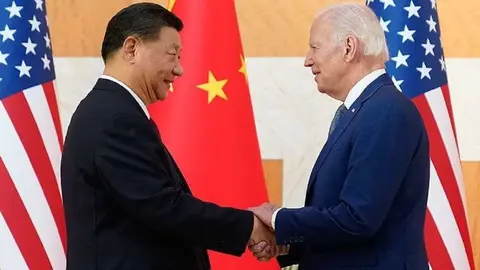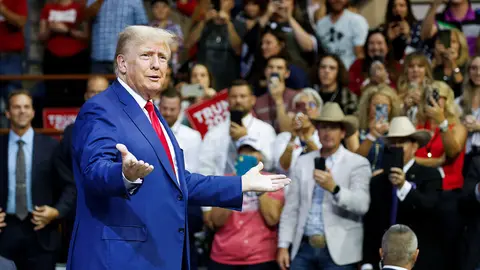Biden and Xi Jinping on the global crisis

The crisis that is being experienced in a divided and confrontational world, as reflected in the two wars that are currently threatening peace, will be the focus of attention at the summit that Joe Biden and Xi Jinping will hold this Wednesday in San Francisco (California). It has been a year since the two most powerful leaders in international politics last met (the last time was in November last year in Bali, Indonesia) and, in this time, far from improving, tensions have not ceased to rise on the five continents.
"It's taken a lot of juggling to get them together at a time like this," a senior White House official commented confidentially. The occasion was provided by the 34th meeting of APEC, the Asia-Pacific Economic Cooperation forum, which this year will focus on global peace and development. The agenda includes the international situation, but, as one might imagine, it will focus particularly on the relations between the two powers, which are not at their best.
Chinese government spokeswoman Mao Ning anticipated that it would be an in-depth dialogue on world peace and development, but when referring to relations between the two countries she was more upfront and warned that China does not seek to change the United States, and therefore the United States cannot try to change China.
For her part, White House spokesperson Karine Jean-Pierre defined the general idea of the meeting in a few words, with the aim of achieving a "responsible management of competition". Competition between the two powers in the political, military and economic spheres goes without saying.
It goes without saying that both the Ukraine-Russia war and Israel's war against Hamas will also take up a few minutes of the estimated two-hour conversation, but less than the thorniest issue: the present and future of Taiwan, which China claims as its own territory, while the United States would even be prepared to go to war to defend its independence.
Next year there are elections on the island and Biden will ask Xi to ensure that Beijing does not interfere in both the campaign and the outcome. It will be difficult for him to do so, as Chinese intelligence is likely to be keen to convince voters of the need to achieve integration and to do so they must support the parties that advocate it. In any case, the vast majority of Taiwanese are not in favour of integration, they do not share the communist system and their hope is to continue to count on the US military backing that guarantees their independent status, even if it is practically a technological and commercial independence that is diplomatically barely recognised by fourteen foreign countries, all of them with littl



